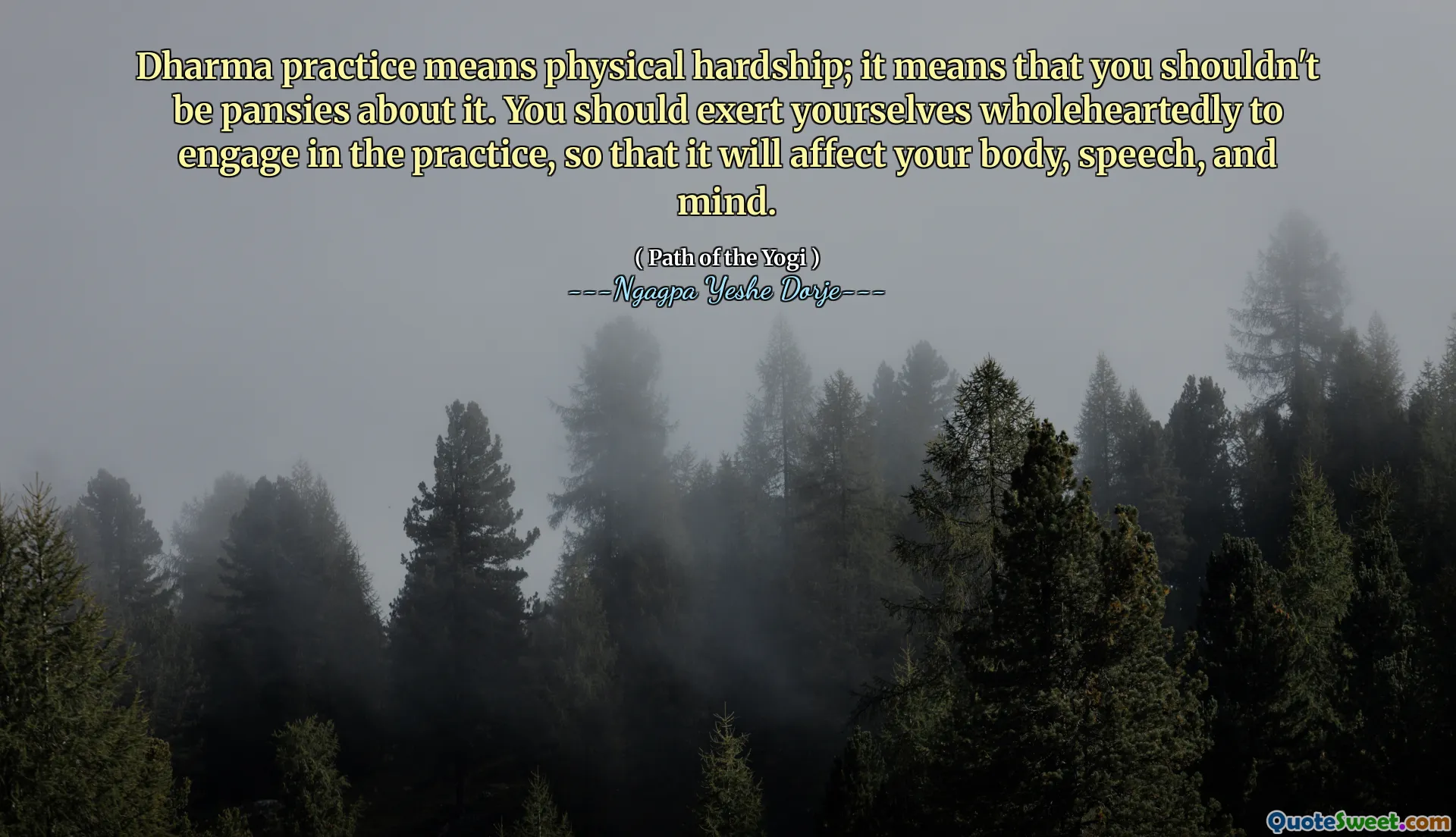
Dharma practice means physical hardship; it means that you shouldn't be pansies about it. You should exert yourselves wholeheartedly to engage in the practice, so that it will affect your body, speech, and mind.
This quote underscores the necessity of dedication and perseverance in the path of spiritual growth. It emphasizes that true practice often involves physical and mental challenges that demand unwavering commitment. In our journey toward enlightenment or self-improvement, there is an inherent recognition that comfort and ease are rarely companions of meaningful progress. Instead, genuine transformation necessitates pushing beyond our comfort zones, confronting discomfort, and exercising mental fortitude.
The metaphor of physical hardship serves as a reminder that diligence in practice is not a passive endeavor, but an active process that shapes every aspect of our being—body, speech, and mind. It suggests that superficial or half-hearted efforts are unlikely to yield profound change. Instead, wholehearted engagement, despite the difficulties it may entail, anchors the practitioner's resolve and ensures that the spiritual principles become deeply ingrained.
Furthermore, this perspective encourages resilience, viewing adversity as a vital part of spiritual development rather than an obstacle. It calls for embracing hardships not as burdens but as opportunities to purify and strengthen oneself. Through consistent effort, one can internalize the teachings, allowing them to resonate authentically through one's actions, words, and thoughts.
By integrating this approach, practitioners foster a discipline that fuels both progress and humility, recognizing that true growth often requires sacrifices. Ultimately, the quote inspires a mindset that values perseverance and wholehearted effort as essential components of authentic dharma practice, guiding us toward a higher state of awareness and compassion.


